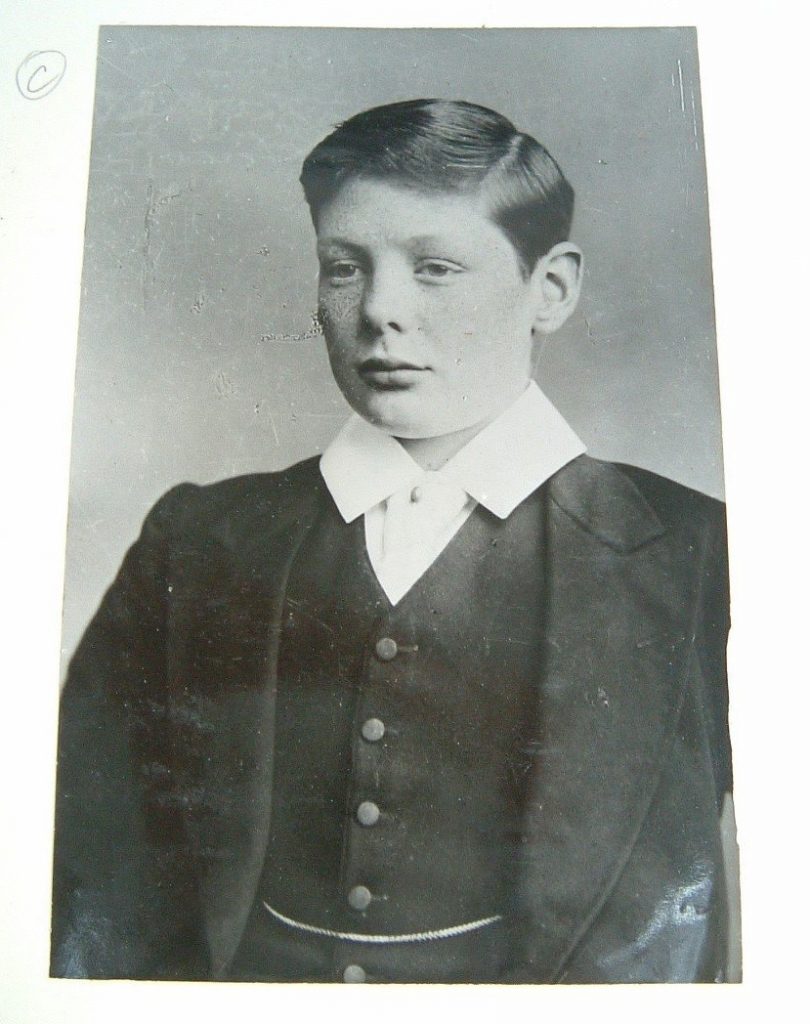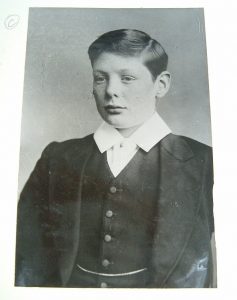
Myths: Fact vs Fiction
Sir Alexander Fleming Twice Saved Churchill’s Life

August 29, 2008
The myth of Fleming saving Churchill’s life

The Churchill-Fleming Non-Connection: The story that Sir Alexander Fleming or his father (the renditions vary) saved Churchill’s life has roared around the Internet for years. Charming as it is, it is certainly fiction. We have cited later references, but in 2009 Ken Hirsch used Google Book Search to track what is likely the first appearance of this myth: the December 1944 issue of Coronet magazine, pages 17-18, in the story, “Dr. Lifesaver,” by Arthur Gladstone Keeney.
Mr. Hirsch also tracked the author (1893-1955), a Florida and Washington D.C. newsman who served during World War II in the Office of War Information. “Since Keeney’s story was published only a year after Churchill was stricken (prominently) with pneumonia,” Mr. Hirsch writes, “I think it may be the first appearance of the myth.”
According to Keeney, Churchill is saved from drowning in a Scottish lake by a farm boy named Alex. A few years later Churchill telephones Alex to say that his parents, in gratitude, will sponsor Alex’s otherwise unaffordable medical school education. Alex graduates with honors and in 1928 discovers that certain bacteria cannot grow in certain vegetable molds. In 1943 when Churchill becomes ill in the Near East, Alex’s invention, penicillin, is flown out to effect his cure. Thus once again Alexander Fleming saves the life of Winston Churchill.

2025 International Churchill Conference
Dr. John Mather writes: “A fundamental problem with the story is that Churchill was treated for this very serious strain of pneumonia not with penicillin but with ‘M&B,’ a short name for sulfadiazine produced by May and Baker Pharmaceuticals. Since he was so ill, it was probably a bacterial rather than a viral infection as the M&B was successful.
“Kay Halle, in her charming book Irrepressible Churchill (Cleveland: World 1966) comments (p. 196) that Churchill ‘delighted in referring to his doctors, Lord Moran and Dr. Bedford, as M&B.’ Then, when Churchill found that the most agreeable way of taking the drug was with whisky or brandy, he commented to his nurse: ‘Dear nurse, pray remember that man cannot live by M and B alone.’ But there is no evidence in the record that he received penicillin for any of his wartime bouts of pneumonia. He did have infections in later life, and I suspect he was given penicillin or some other antibiotic that would have by then become available, such as ampicillin. Also, Churchill did consult with Sir Alexander Fleming on 27 June 1946 about a staphylococcal infection which had apparently resisted penicillin. See Churchill: Taken from the Diaries of Lord Moran (Boston: Houghton Mifflin 1966), p. 335.”
Official biographer Sir Martin Gilbert adds that the ages of Churchill and Fleming (or Fleming’s father) do not support the various accounts circulated; Alexander Fleming was seven years younger than Churchill. If he was plowing a field at say age 13, Churchill would have been 20. There is no record of Churchill nearly drowning in Scotland at that or any other age; or of Lord Randolph paying for Alexander Fleming’s education. Sir Martin also notes that Lord Moran’s diaries, while mentioning “M&B,” say nothing about penicillin, or the need to fly it out to Churchill in the Near East.
Subscribe
WANT MORE?
Get the Churchill Bulletin delivered to your inbox once a month.



